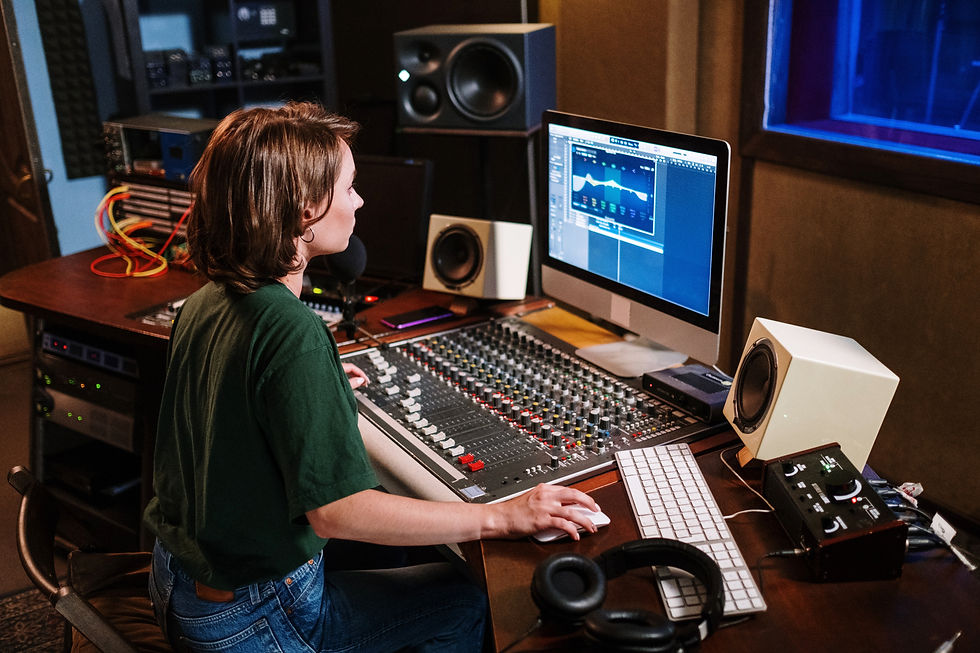Did You Know About These 5 Features of Ableton Live?
- DJ Terhinator

- Aug 16, 2023
- 3 min read
Are you ready to improve your workflow and finish more music in Ableton Live? Let’s get to know the best Ableton tips of music producer and Ableton Certified Trainer LNA’s Patreon community – but beware, these tricks may blow your mind!

Ableton Live is filled with features, each one more astounding than the other. Luckily, knowing the very basics is often enough to start making your own music.
Because of the versatility of the software, one may use it for months or even years without knowing about some of the simplest, yet most useful functions it has to offer.
Are you aware of the 5 mind-blowing features below, discussed recently on Discord by LNA’s Patreon community? Knowing and using these Squirrel approved tips may even change your whole workflow!
Join the Squirrels! LNA’s Patreon community, also known as the Squirrel Squad, is a friendly and supportive online group consisting of the kindest producers from all around the world. There’s always room for new members, so why not become one of LNA’s Squirrels? Click here to learn more and join the discussion on Discord and monthly listening parties!
1. Scale Mode
Keep your melody in scale by activating Scale Mode on the lower left corner of the clip view. After clicking the Scale button you’re free to choose the desired root note and scale, whether it’s major, minor or something more exotic. All notes of the chosen scale become highlighted on the piano roll and MIDI note editor.
Activating the Scale button above the piano roll hides all notes not belonging to the selected scale. The Fold button next to it hides all rows not containing MIDI notes.

2. Drum Rack Presets
Looking for that perfect beat? Drop your favourite kicks, snares, hats and claps into drum racks, save them as presets and colour-tag them in your Collections (see tip #2 here). When building your drums, create a MIDI channel and simply drop a preset in to hear how it sounds. By using this method you can quickly test different combinations on the go, instead of going through all the samples one by one.
The same tip can be implemented into other sounds as well. They might be called drum racks, but they don’t have to be used for drum sounds only!
To learn more about drum racks, have a look at this video:
3. Deactivating Clips
When arranging a song, it’s sometimes hard to decide between using an element or not. An easy way to hear the arrangement without a certain element is to deactivate it by clicking the clip and then pressing zero on your computer keyboard. When you want it back on, just click it and press zero again.

4. Automating Gain in Utility
When automating the track volume, you might encounter trouble if you later need to touch the volume slider again. Instead, automate the volume of a track by using Utility – just automate the Gain control and twist is as much as you like. This doesn't affect the controllability of track volume in the mixer section.

For more information about automation, see here:
5. Mono Test

We all want our tracks sounding good in stereo, but let’s be honest – a lot of music gets played on low-quality speakers such as those on your phone. If your track sounds good also in mono, it sounds good in any speakers.
To check this easily while working, drag Utility onto your master track and map the Mono button to any key of your computer keyboard (e.g. the key M). This way you can easily toggle between mono and stereo by pressing the chosen key.
To map, click the Key button on the top right corner of Ableton. Click the parameter you want to map (in this case Utility's Mono button), then press the desired key on your computer keyboard.
To see how it looks like, watch this short Ableton tutorial:
Cover photo: Antoni Shkraba Production / Pexels













Comments